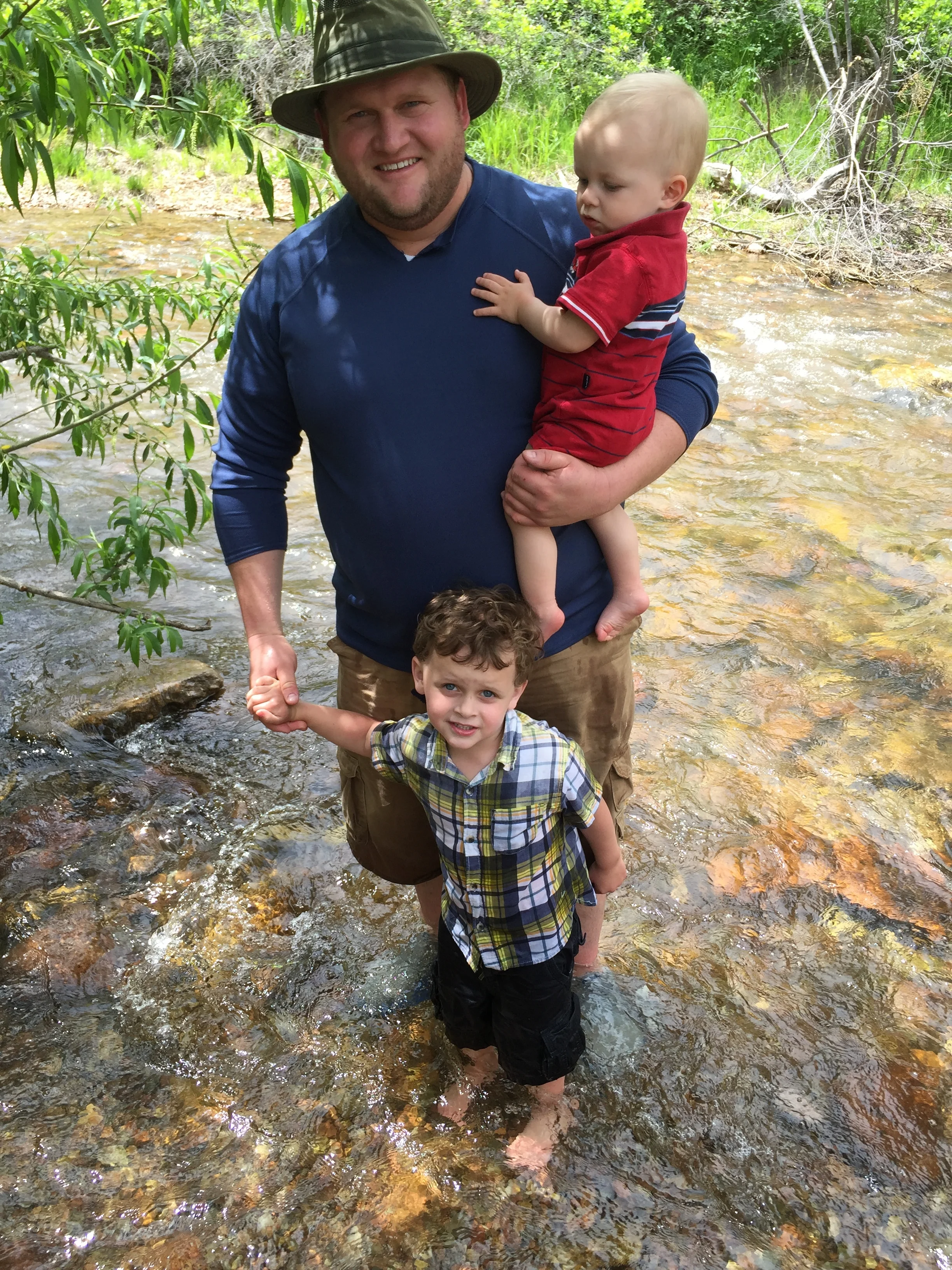Growing up, my dad always reiterated that I was not cut out for sports. I "didn't have the build" that those jock girls did. In retrospect I think he had some very old-school ideas about girls who played sports being butch or manly in some way. I think I would have been fine. I certainly had (have) the competitive drive, but I think I missed that window to develop the requisite coordination. Other kids went to school with at least a base-level understanding of soccer and basketball. I'm pretty sure that by the time I was lumped in with those kids, by brain had already weeded out any neurons required for athleticism. I was usually one of the last kids to get picked for teams.
I always regretted the missed opportunities of playing sports, and so I joined the tennis team my senior year. My dad warned of failure, but also agreed to play me for practice. I wasn't great, but I also wasn't bad for my first year. My coach told me he wished I'd joined as a freshman. Yeah, me too, I thought.
Fast forward a few years, and I decided to try running. I was more surprised at this development than anyone, given that It had always been something I detested. Kids would jeer at my knock-knees, my feet flaring out to the sides as I ran. In the early grades, I was always one of the last girls to finish the mile. The boys sat on the sidelines and watched while the girls ran (and visa versa), which made it doubly embarrassing. I always got a stitch in my side or shin splints, even when I wasn't winded. I had decided early on that I simply wasn't made to run.
Yet I always admired runners, amazed that anyone could just go like that for miles and miles. In rare moments, when none of my peers were around, I even liked it. And so at the age of 23, I decided to give running a second chance. And something just clicked. No stitch in my side, no shin splints. No one to make fun of my awkward gate. I genuinely enjoyed it.
I ran a 5K, then a 10K. I wasn't impressing anyone of course—except myself. For the first time in my life, I saw value in my body for something it could do. All my life, I'd been taught to value my body merely for its appearance. I was always mindful of my weight, my clothes, hair, and makeup. Being proud of my body for its function was new and exhilarating territory.
Shortly thereafter I became pregnant. For the first time I saw value in my body for something it could do, completely in spite of how it looked. My belly swelled to unattractive proportions, and yet I was glowingly proud of the life that kicked and rolled within. Pregnancy seemed to suit me, as I avoided or only suffered mildly from many of the common pregnancy ailments. However, I foresaw birth as a grotesque event for which I knew my husband must be present, yet I secretly wished he could be blindfolded. When the time came and I was able to push my baby out with no interventions and no pain killers, I was more proud of my body than I ever had been. I had never looked more awful, with my deflated belly and 25 pounds of padding, but I felt like a million bucks. My husband seemed just as proud.
My pride melted away much faster than the pounds. A few months later, utterly exhausted and still in my "fat pants," I felt depressed. A lifetime of valuing my body for its appearance had laid a deep foundation of thought patterns that overrode my pride in creating a child. I just didn't feel like "me" anymore. I picked up running again, and seven months after Asher was born I ran my first half marathon. I whittled myself back down to my pre-pregnancy weight, and...quit running altogether. The half marathon and the training left me with nine blisters on my poorly-aligned feet, and a knee that hurt for weeks. It had mainly been about the weight-loss anyway, right?
Fast forward another year. Still acceptably thin, I became pregnant with my second child. I again marveled at my body's ability to create and bear a baby, then got sucked into the post-baby body blues. I lost the weight quicker this time, but was mildly horrified at how out of shape I was when I first worked out. I was so sore, from shoulders to ankles, that I wanted to lie in bed for two days. Still, I committed to finishing a month-long exercise program, and by the end of the month I was much stronger.
I noticed, though, that something about my stomach did not look right. If I leaned back and relaxed my abs (what was left of them), a bulge appeared along the midline in my stomach, creating an odd domed appearance. When I pressed on it, my stomach felt tender, as if I was poking my guts. Come to think of it, there had been a sore spot there for months, just north of my belly button, which twinged when I bent over the crib rail or if I was kneaded by a small foot. I saw a general practitioner, then a physical therapist, and learned that the bulge was called diastasis recti. "Diastasis" means "separation," and "recti" refers to the abdominus rectus muscle. Basically, (the way my PT described it) the ab muscles sit side-by-side at the midline on top of connective tissue. When a woman is pregnant, muscles separate to accommodate the growing baby. Typically, the muscles come back together within a few months of giving birth. But frequently it doesn't; the connective tissue is too stretched out. I don't know how accurate these statistics are, but some suggest that it happens in a third of women after a first pregnancy, and two thirds of women after a second (I assume the rate climbs with additional pregnancies). I'd heard of "the mommy pooch" or "mummy tummy," but frankly I think most women who have it don't realize they do, or what it truly is. In all of my rather exhaustive reading about pregnancy and birth, I had never encountered it. Neither my PT nor the GP had satisfactory answers to many questions. Can it be prevented? What made me more likely to get it? Will my separation worsen with subsequent pregnancies? Will exercise reduce my risk of worsening the gap? No one seemed to know. The general practitioner hadn't ever seen anyone for it, and wasn't even aware that physical therapists provided help for the condition until I told him so and asked for a referral.
And that little pain above my belly button? Likely an umbilical hernia, the general practitioner said, though it was impossible to confirm without an ultrasound. Diastasis recti is never painful in itself, and there was a definite twinge of pain now and again. I remembered a time in my pregnancy with Asher that my belly just HURT, to the point that I would sometimes walk around with my hand pressed on the sore spot to counter the painful stretching. I even Googled "umbilical hernia" once. The doctor didn't seem worried about it, didn't think that it would worsen with more pregnancies, and said simply to come back if the pain increased. The physical therapist prescribed me an exercise routine (lots of planks, no sit-ups or crunches), and sent me on my way. I felt empowered and excited to get in great shape.
Except I didn't. I would run here and there, do an exercise video, or lift weights. Once I went to a free crossfit class at the "box" where Dave goes, and was mildly humiliated to find that I was nearly the worst one there. Even the "bigger" girls in the class schooled me on all the strength exercises. My workouts were few and far between, as I struggled to find the time and consider myself enough of a priority. I could justify the time and energy if I needed to lose weight, but once I reached my goal I made excuses. I forgot that exercise makes me feel good, and that is even more important than how I look. Emotionally I am happier, mentally I am sharper, and I feel more confident in my body, even if it doesn't look any different. Additionally, I'm more motivated to eat healthfully and in moderation. It's also important to me that I model healthy habits for my boys, who really love being outside and are nearly always well-behaved in the stroller.
But I repeatedly forget all of that. Working out at home requires that I get up early, and staying up late gives me the alone time that I need to refuel. I have to pick. I can and should run, but pushing two kids in double stroller (roughly 100 lbs) in a hilly neighborhood is exhausting, even when you have a Cadillac stroller. Making excuses is far easier than making the time, especially when I am constantly confronted with (literal) piles of to-dos. How do I justify going for a jog when my pantry is a jumbled mess, or the kids' clothes have been sitting folded in the hamper for two days? It is so SO difficult to live and work in the same place. I envy those for whom "work life" and "home life" are not the same thing, though I wouldn't give up staying home with my boys.
Truly, the only way I can frame exercising regularly in way that is justifiable is to remind myself that I'm teaching my boys good habits. They will be more active and healthy if that example is set for them at an early age. They will enjoy being outside if I take them on runs. I will be more fit and I'll play a more active role in the lives of my grandchildren if I develop lifelong habits of health. The guilt I feel over the perpetual crumbs in the cracks of my kitchen table will be forgotten, but the runs to the park will not.

























































































































































































































